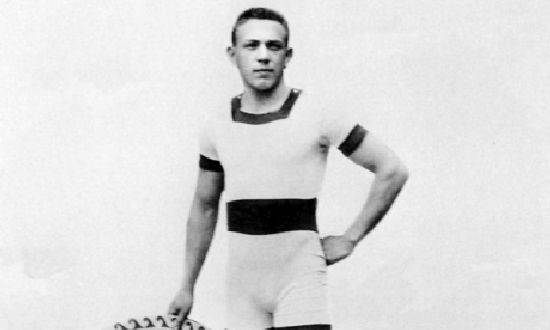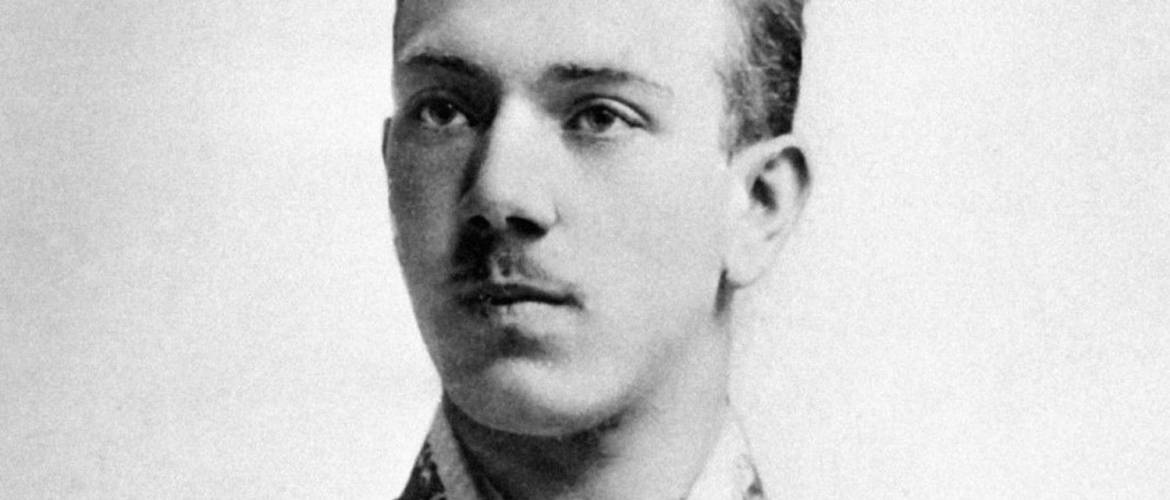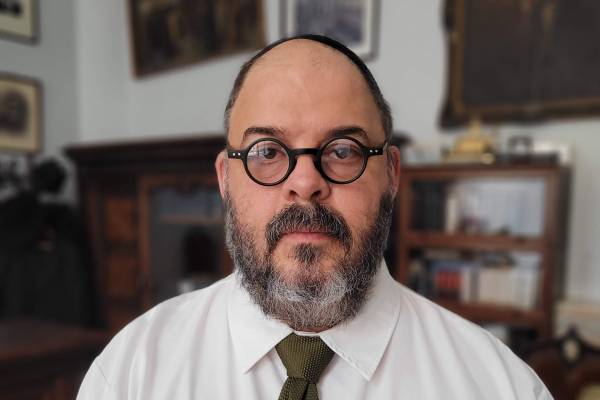On
Friday, 26 July, the 2024 Summer Olympics, officially the Games of the XXXIII
Olympiad began in Paris. In the articles published on our website during the
games, we will celebrate the greatest Hungarian Jewish Olympic champions of the
past, reviving their achievements and immortal spirit. In our first article, we
pay tribute to Alfréd Hajós, who excelled in both architecture and sports.
April
11, 1896, was a historical date in sports; on this day, the first swimming
competition in Olympic history was held at the first modern games in Athens. It
was won by Alfréd Hajós: he triumphed in the 100-meter distance. Not long
after, he also won the 1,200 meters, launching Hungarian swimming on its
world-conquering path. The answer he gave at the medal ceremony to the question
of the Greek ruler at the time, King George I, became legendary. "Where
did you learn to swim so well?" "In the water!"
Known
and respected as the first Hungarian Olympic champion and the world's first
Olympic champion swimmer, Hajós was a true polymath who also left his mark as
an athlete, coach and architect.

Alfréd
Hajós was originally born as Arnold Guttmann in 1878 in a poor Jewish family
and died in 1955. He learned to swim at the age of four; already in 1895, he
won the 100-meter swimming at the unofficial European Championships. The
following year, on April 11, 1896, he made history at the first modern Olympic
Games in Athens, when he won gold medals in both the 100- and 1200-meter
freestyle swimming, earning him the name "Hungarian Dolphin" from the
Greek heir to the throne.
Hajós
was not only a swimmer. He excelled in both gymnastics and athletics, and his
football career was also notable. He played in the Budapesti Torna Club (Budapest Gymnastics Club),
won championships in 1901 and 1902, and participated in the first match of Hungary's
national team. He later became the captain of the national team. From 1897 he
was a referee and one of the referees in the most international matches of national
teams in Europe. He was co-chairman of the Hungarian Football Association
(MLSZ), the Swimming and Gymnastics Association, and a member of the Hungarian
Olympic Committee.
After
his studies at the Budapest University of Technology, Hajós worked with
renowned architects, including Ernő Lechner, before opening his own design studio
in 1907. At first, he pursued art nouveau style, then eclectic, while in his
mature years he created in a constructive, modern spirit, mostly in an
Italian-influenced design. Among his notable projects are the palace of the
Hungarian General Credit Bank in Szabadka/Subotica, the Lichtenstein Palace in
Miskolc, the Institute of the Blind in Budapest, the Hotel Aranybika in
Debrecen, and the Synodal Center of the Reformed Church. After 1945, he led the
restoration works of the Vajdahunyad Castle, the Stock Exchange Palace and
several other public buildings in Budapest.
Thanks
to his sporting success, he was initially exempted from the scope of anti-Jewish
laws but had to go into hiding during the rule of the Arrow Cross. His
greatness as a human being is illustrated by the fact that he still tried to
help others.
Hajós’
influence went beyond his sporting and architectural successes. He played a
significant role in the Hungarian Olympic movement, worked as a sports
journalist and contributed to the reconstruction efforts after the Second World
War. Among his recognitions are the Golden Diploma of Architecture, the gold
grade of the Sports Merit Medal, a certificate from the International Olympic
Committee and the Ybl Miklós Award.
The
posthumously honored Hajós is a member of the International Swimming Hall of
Fame and the International Jewish Sports Hall of Fame. His legacy is
commemorated by statues, plaques and institutions named after him, such as the
Alfréd Hajós Primary School and the Hajós Alfréd Association, ensuring that his
contribution to sport and architecture is never forgotten.
Lilla Zucker-Kertész

 02.13. 16:45, kimenete: 02.14. 17:52
02.13. 16:45, kimenete: 02.14. 17:52 




1.jpg)
